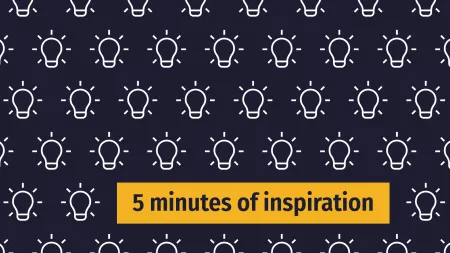“The commune [talked] to me with good words and friendlier than before when I go to use ask them for the administration documents for my children.” Students and people at health services talk about how now teachers and nurses don’t discriminate against poor patients or people from ethnic minorities.
It seems like little enough to ask for — kind words, fair treatment, a lack of discrimination, and someone who helps you solve your problems when you show up for help. But for nearly a million people in Cambodia — and for billions more around the world — those changes are transformative. They make a world of difference in belonging, in participating, and to feeling like your priorities matter.
That’s what the team in Cambodia, with hundreds of local groups, 14 partner NGOs, and buy in from local governments, is accomplishing. They’re building a world where everyone feels valued.
The Meaningful Civic Engagement by Leveraging Digital Technologies (also called ISAF II) project is running in Cambodia from 2019-2023. With $2.6 million from EU’s Directorate-General for International Cooperation and Development (DG DEVCO), the project aims to reach 900,000 citizens indirectly, and 18,302 directly. The project’s midterm shows great learning and progress so far.
What changed?
- Youth are more engaged in government planning. The number of ethnic minority youth who participate in planning processes jumped from 50 to 85%.
- Young people see their priorities show up in planning. 98% of young people say the action plans reflect young people’s priorities. 84% say poor people’s priorities are included in the action plans. 66% say the plans reflect women’s priorities.
- Governments are accounting for youth priorities. The number of government officials who say their plans reflect youth priorities went from 50 to 64%.
- Governments are funding for youth priorities. 39% of the Joint Accountability Action Plans that ethnic minority youth helped develop are connected to Commune Investment Plans. 39% of those plans were also implemented using local service providers’ budgets.
- Young people are more likely to know how to participate. Before the project, none of the ethnic minority youth knew how to participate in a Joint Accountability Action Plan. Now 25% of them know how.
- People are willing to give (digital) feedback. Ethnic minorities are 4.8 times more likely to be willing to give digital feedback than before the project. Young people are 2.6 times more likely to be willing to give feedback now.
- People know where to get information. Ethnic minorities are more likely to know how to get information about service standards (from 18-29%).
- The most marginalized people are more satisfied with services. Ethnic minorities, people with disabilities, and young people are all more satisfied with services than they were before. One person said, “When I request a birth certificate, they explain the process well without discrimination and didn’t charge a fee.” Women and general citizens had more neutral responses than they did before the project (fewer positive responses and fewer negative ones across the board).
- Youth are more satisfied with education. Youth satisfaction with education went from 56 to 82% in 3 years. In one student’s words, ““Teachers paid more attention to the students and didn’t discriminate with poor students.”
How did it happen?
- Service providers are more transparent. Services providers are more than twice as likely to post and update their services standards—especially in online spaces. Now, 95% of service providers post info online and offline.
- Support organizations that build youth leadership.14 local NGOs and 535 Community Action Forums use CARE’s Youth Leadership Index and have completed the training package on building leadership with young people.
- Use (digital) community scorecards. 3,547 people participated in 161 digital community scorecard processes by April of 2022. Surprisingly, even though 86% of young people had internet access through a smartphone, young people are still much more likely to give feedback in person. When they do give online feedback, it is most often to a government official’s personal Facebook account or over messaging services like Whatsapp.
- Communities mobilize resources to act. 53% of action items on the plans get resolved within 12 months. As one member said, “committees can help mobilize budget and contribute money to repair roads in the community and make fences and gardens in the commune.” Another community said, “Most of the people are happy with their livelihood gains from the project achievements and outputs. For example: wells, pathways, toilets, school and health centre buildings etc. These improvements help their daily life.
